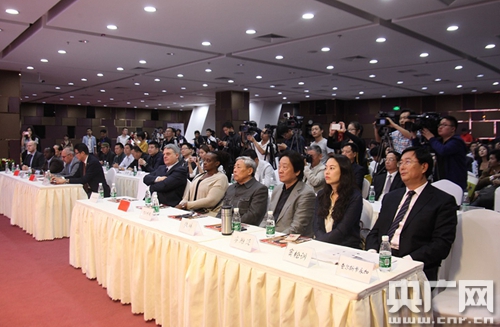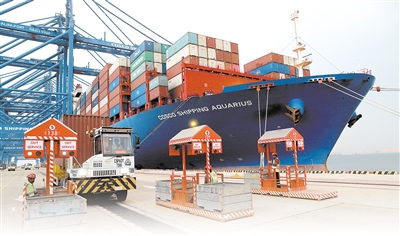Building A Dream Together "Belt And Road" To Seek Development Together - Special Report On Summer Social Practice For Students Of Tongji (II)
Building A Dream Together "Belt And Road" To Seek Development Together - Special Report On Summer Social Practice For Students Of Tongji (II)
Building a Dream Together "Belt and Road" to Seek Development Together - Special Report on Summer Social Practice for Students of Tongji (II)
As China's highest national-level top-level strategy, the "Belt and Road" strategy has attracted widespread social attention since its introduction. This year, our school’s summer practice combined with social hot spots and responded to the call of the times to launch a special practice of “building dreams together and seeking development”—the “Belt and Road” survey along the “Belt and Road”. Since July 15, 146 students and 27 teams from the School of Economics and Management, the School of Architecture and Urban Planning, the School of Civil Engineering, the School of Surveying, Mapping and Geographical Information, and the School of Transportation Engineering have gone to ten different provinces, cities and autonomous regions including Xinjiang, Sichuan, Henan, Shanxi, Gansu, and Ningxia to carry out practice.
Xinjiang has an extremely special geographical location and strategic position on the Silk Road of ancient and modern times. It is precisely because of this that the "Belt and Road Research Group" composed of several students from the Civil Engineering, Transportation, Medicine and other colleges stepped on this vast land for on-site inspection.
The team first interviewed relevant staff from the Xinjiang Provincial Department of Commerce on issues of economic development and other concerns, and then distributed questionnaires in places with high traffic in Urumqi and Hami, Dongdaemun, Xinjiang to understand the impact of the "Belt and Road" strategy on ordinary people and their attention to this strategy. During the on-site investigation, the team members applied to relevant departments for public data, such as import trade volume and increase or decrease, and the proportion of various industries in import and export volume. Through practice, the team obtained a clear panoramic view of the implementation of Xinjiang's "Belt and Road" strategy.

Based on the "Belt and Road", Sheng Yezhe's practical team from the School of Telecommunications used the summer time to conduct research on its hometown of Heilongjiang Province. Combined with the practical results, it proposed four transformation paths for how resource-depleted cities in Northeast China can achieve "rebirth": deepen supply-side reform and resolve excess capacity; use the "Bei Datang" resources to accelerate industrial transformation; develop green tourism, "the scenery of the north is also beautiful"; use the "Belt and Road" economic belt to build a regional trade center.
He Shengyi and Bai Yingqi from the School of Mechanical and Energy and the School of Transportation Engineering were concerned about the impact of the "Belt and Road" on Aksu agriculture. They came to Hongqipo Farm in Aksu and conducted field investigations at the Hongqipo Apple Planting Base in Hongqipo Apple, and saw the growing apples with their own eyes. In an interview with local government staff, they learned that although Aksu is located in southern Xinjiang, it is also affected by the radiation of the economic belt. This policy will bring many new opportunities to Xinjiang agriculture and will be an important driving force for the development of modern agriculture in Xinjiang. At present, the team is conducting field research based on their ideas, hoping to discover problems in practice, improve knowledge, and contribute to the green and diversified development and transformation of their hometown.
The areas along the "Belt and Road" not only have rich resources but also accumulate brilliant historical and cultural heritage. With the continuous development of the times, various fresh elements are influx. How to make the new culture shine on the basis of protecting traditional culture, and how to make the two forces burst into brighter light in the collision? This is what many practical teams of Tongji University think about.
Based on professional expertise, the practical team from the School of Civil Engineering selected the highly representative ancient capital of Luoyang for research in order to explore the gains and losses of ancient building renovation in my country. On the one hand, the practice team checked the information to understand the reasons for the renovation of Luoyang’s old city building and related renovation policies; on the other hand, through on-site visits, they investigated the progress of the protection and maintenance of ancient buildings in Luoyang’s old city building and the content of renovation; they also used visits and questionnaires to investigate the views of local residents, governments and tourists on the renovation. During the visit, the group found that tourists did not understand the local environment, and the information investigated from the tourists was quite different from the actual situation in the local area; in addition, residents had a clear understanding of the local area, and the survey information was subjective and biased and not objective. Another practical team from the Civil Engineering College went deep into some underdeveloped areas in Yunnan and launched a "Belt and Road" policy propaganda team. During more than a week, they used the daytime to explain to students the culture, politics, economy and geography of countries along the Belt and Road, opening a new door to understand the world for them.
Another team from the School of Economics and Management focuses on the characteristic local opera in Hunan - Baling Opera. It starts from the historical and current situation of Baling Opera and collects the public's understanding and cognition of Baling Opera through questionnaires. On-site interviews, literature review, and contacting Yueyang Baling Opera Inheritance Research Institute and related drama clubs, the team not only understood the public opinion of the people, but also deepened practical information from a more professional perspective.
Sheng Jia said that every member of the team attaches great importance to this summer practice activity. Tongji students’ responsibility and responsibility to “help people and help the world”, let them take the initiative to act as propaganda messengers of Baling Opera and prevent the “living fossils” from disappearing.
The Internet has accelerated the interconnection between China and other countries, and there is huge room for cross-border e-commerce development. However, China's laws and regulations, norms and standards for cross-border e-commerce are not perfect, and it needs to be improved and improved urgently.





